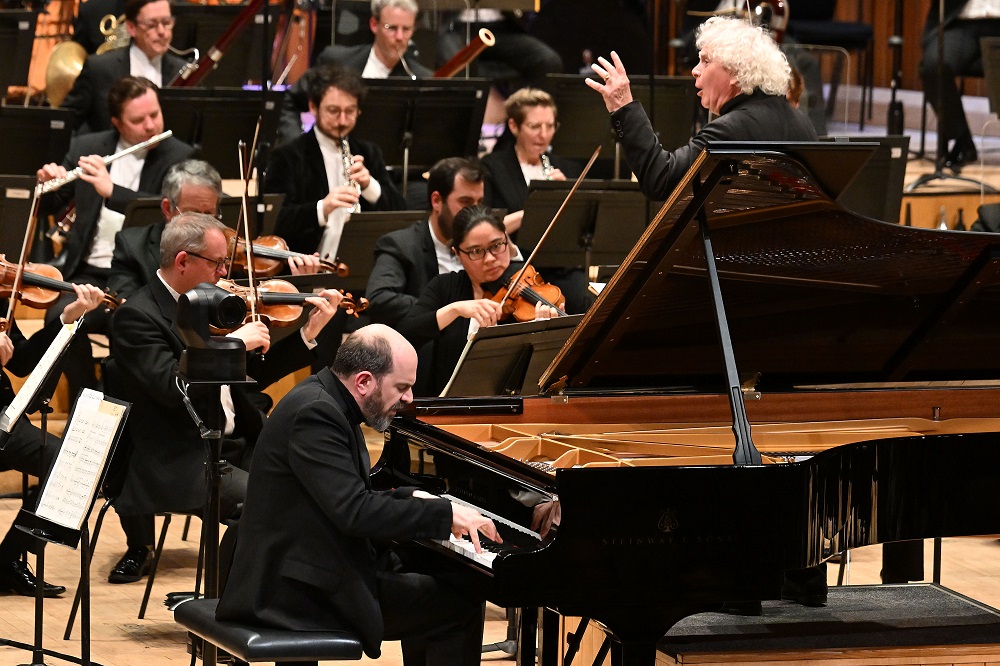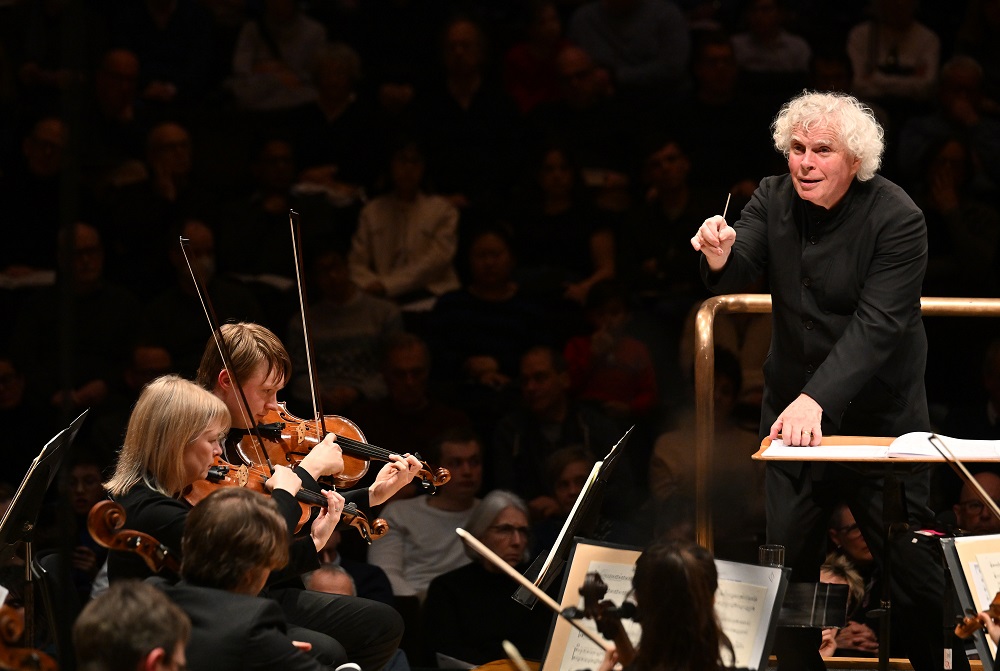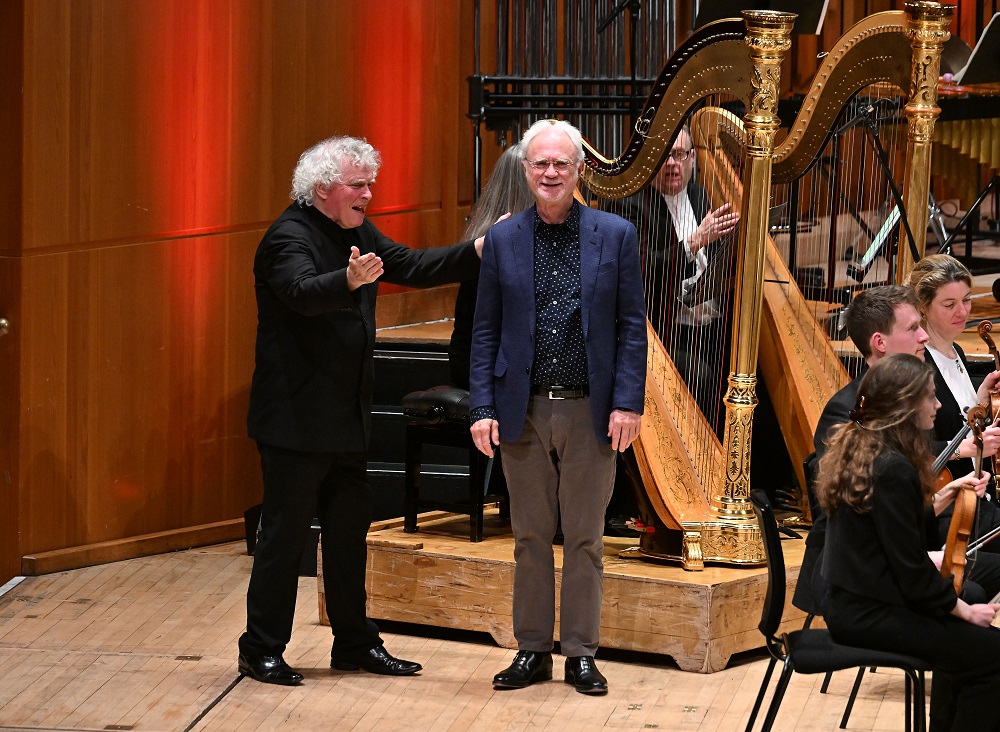How lucky those of us were who grew up musically with the young Simon Rattle’s highly original programming in the 1980s. He’s still doing it at a time when diminishing resources can dictate more careful repertoire, and last night’s Americana proved spectacularly original. Four of the five works gave a different perspective on the decade and a half in which Shostakovich’s very different Fourth Symphony, LSO triumph of the earlier part of the week, failed to reach public performance.
Did the sequence work? Not entirely. Bookending a John Adams premiere, an unfamiliar expansion of Gershwin’s melody-packed Piano Concerto and an absolute masterpiece, Roy Harris’s Third Symphony, with overtures to two Gershwin musicals meant celebrating the manner of the London Symphony Orchestra’s big, broad swing in this music under Rattle rather than the matter of these potpourris prefacing the political semi-satires Let 'Em Eat Cake and Strike Up the Band, two works which no longer have potency on the stage in the way that Bernstein’s On the Town or the Rodgers and Hammerstein shows still do. At least we left humming the one familiar tune, the title song of the latter. 
Even the slow movement gets a hold-up just when we need to arrive finally at the big tune – one of Gershwin's very greatest, and lushly phrased by the LSO strings. But James Fountain's high-wire, bluesy trumpet was a star, a worthy heir to Maurice Murphy of immortal memory, and while the big-boned Rattle approach left some slack in its predecessor, the finale was a real roller-coaster ride. Cap that? Gerstein did, with a discombobulating Earl Wild transcription turning "I Got Rhythm" into a Ligeti etude. 
It's often been said that this is an American symphony pure and simple, but, following as it does the concision and ineffable development of Sibelius Seven, it's simply a world-class masterpiece, evolving into a gorgeous pastoral idyll with multi-divided strings and ending with the supreme surprise of doombeats. Few musical works begin in a major key and end in the minor, but here's one which does so magnificently. 














Add comment